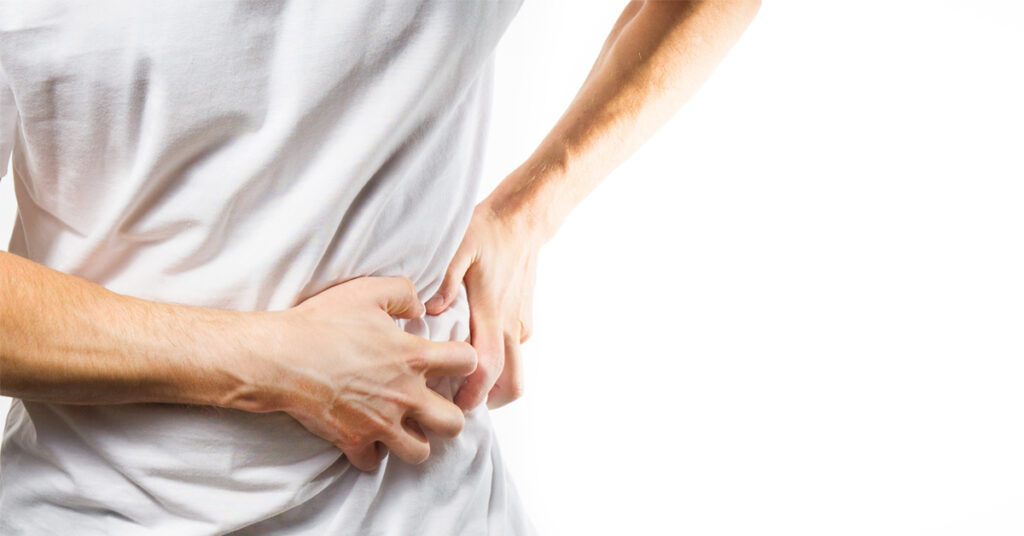
The kidneys are two bean-shaped organs near the middle of your back, on either side of your spine. They are responsible for filtering waste products and excess fluids from your bloodstream and excreting them in the urine. The kidneys also play a crucial role in regulating blood pressure, producing hormones, and maintaining the balance of minerals and salts in your body.
Kidney stones are a common and often painful condition affecting millions of people every year. These tiny stones are formed from mineral and acid salts that accumulate in the kidneys and can cause immense discomfort as they travel through the urinary tract.
Common Causes of Kidney Stones
The formation of tiny crystals in your urine can occur when there are too many minerals and salts in your system. Over time, these crystals can grow and form a solid mass called a kidney stone. Here are four common cases of kidney stones.
- Not drinking enough fluids
Staying hydrated is vital to preventing kidney stones. When you don’t drink enough fluids your urine can become concentrated and tiny crystals can eventually form into stones. Be sure to drink enough water every day to stay properly hydrated and keep your urine pale yellow. - A diet high in salt, sugar, and animal protein
A diet that’s high in salt, sugar, and animal protein can increase your risk of developing kidney stones. High levels of salt and animal protein can increase the amount of calcium and oxalate in your urine, which can lead to the formation of stones.
Additionally, a high-sugar diet can lead to weight gain and increase your risk of developing kidney stones.
- Medical conditions
High blood pressure and diabetes can also increase your risk of developing kidney stones. High blood pressure can damage the blood vessels in your kidneys, making it harder for them to filter waste from your blood. Diabetes can also lead to high sugar levels in your urine, increasing the risk of stone formation. - Medications
Certain medications, such as calcium-based antacids and diuretics, can also increase your risk of developing kidney stones. Calcium-based antacids can increase the amount of calcium in your urine, which can lead to the formation of stones. Diuretics or medications that help increase urine output, can also lead to dehydration, increasing the risk of stone formation.
It is important to talk to your healthcare provider about medicines and how they may affect your risk of developing kidney stones. Your doctor can help you determine if any changes need to be made to your medication regimen to reduce risk.
Symptoms of Kidney Stones
Knowing how to identify the symptoms of kidney stones is key to ensuring prompt treatment. Here are seven of the most common symptoms of kidney stones.
- Pain in the lower back, side, or groin
Intense discomfort is the most common symptom of kidney stones. The pain is usually described as a sharp, cramping pain and can vary in severity. - Nausea and vomiting
Symptoms like nausea and vomiting can occur due to the pain caused by the stones. - Urgency and frequency of urination
Kidney stones can cause a strong urge to urinate, and you may need to go more often than usual. - Blood in the urine
The stones can cause minor cuts and abrasions in the urinary tract, resulting in red or pink-colored urine. - Cloudy or strong-smelling urine
The presence of stones in the urinary tract can cause the urine to become cloudy or have a strong odor. - Chills and fever
If a stone becomes stuck in the urinary tract and blocks the flow of urine, an infection can occur, causing chills and a fever. - Difficulty or pain when urinating
Kidney stones can cause discomfort or pain when passing urine, accompanied by a burning sensation.
Find the Best Treatment Options for You
It’s important to note that some people with kidney stones may not experience any symptoms, while others may experience severe pain and discomfort, especially when they are passing through the urinary system. The severity of symptoms can vary greatly depending on the size and location of the kidney stone.
If you think you may have kidney stones, see a healthcare professional as soon as possible. They will be able to diagnose your condition and provide you with the appropriate treatment.
Call to schedule an appointment today!

